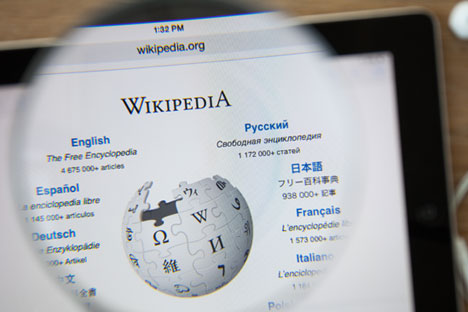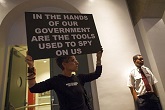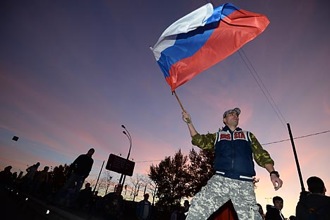Media watchdog lifts ban on drug article

A Wikipedia article about the narcotic substance charas that violated Russian laws has been edited and has been removed from the unified register of banned information. Source: Shutterstock
An article in Wikipedia about the drug ‘charas’ (widely grown in the Himalayan region—editor), which violated Russian law, has been suitably edited, after which the ban on it has been lifted from the unified register of banned information, Russian media watchdog Roskomnadzor said on its website on Aug. 25.
"The resolution issued by the Chernoyarsk court in the Astrakhan Region with regard to the internet encyclopedia Wikipedia has been implemented. The information recognized by the court as banned has been edited. The reference mentioned in this court ruling has been excluded from the unified register of banned information," said the statement.
Roskomnadzor had instructed telecom operators to block access to a Wikipedia article about ‘charas’, a type of dangerous narcotic made from the resin of the cannabis plant.
In an earlier statement, the supervisory body said, “the unlawful nature of the information posted on Wikipedia” had been confirmed by an expert assessment and by a ruling by the Russian Federal Drug Control Service.
The decision to ban the dissemination of information in Russia about methods to make drugs was upheld by a court in the Astrakhan Region in late June.
The executive director of Wikipedia RU, Stanislav Kozlovsky, said that “all the information in the article in question was taken from the UN website, all the sources were academic”. He said, “We discussed this situation and decided to keep the article.”
Roskomnadzor ordered telecom providers to block access only to the page that contained the article in question. However, Wikipedia operates on the HTTPS protocol (which does not allow for individual pages to be blocked), so access to all of the resource would have to be blocked.
Chief analyst with the Russian Association of Electronic Communications Karen Kazaryan told RIR that, in his opinion, the Russian regulator exceeded its powers.
“In my view, Wikipedia adhered to the letter of the law. The article is no longer available at its original address. It appears that Roskomnadzor decided to opt for a confrontation and to make a show of punishing a resource that has decided to act differently.”
Media analyst and popular blogger Anton Nosik pointed out that “in this case the problem is with the law [which necessitates blocking access to resources carrying this type of information] rather than with Roskomnadzor.”
“Roskomnadzor must abide by the law. This law is of poor quality. It creates grounds for an unlimited number of violations,” he said.
Nosik added that this was not a new law and access to various resources was banned on a regular basis, and people have learnt how to circumvent these blocks. “Now there will be more of those people.”
“All those in Russia who want to continue using the internet should take the trouble to install software for bypassing [possible bans],” he said.
All rights reserved by Rossiyskaya Gazeta.
Subscribe
to our newsletter!
Get the week's best stories straight to your inbox

